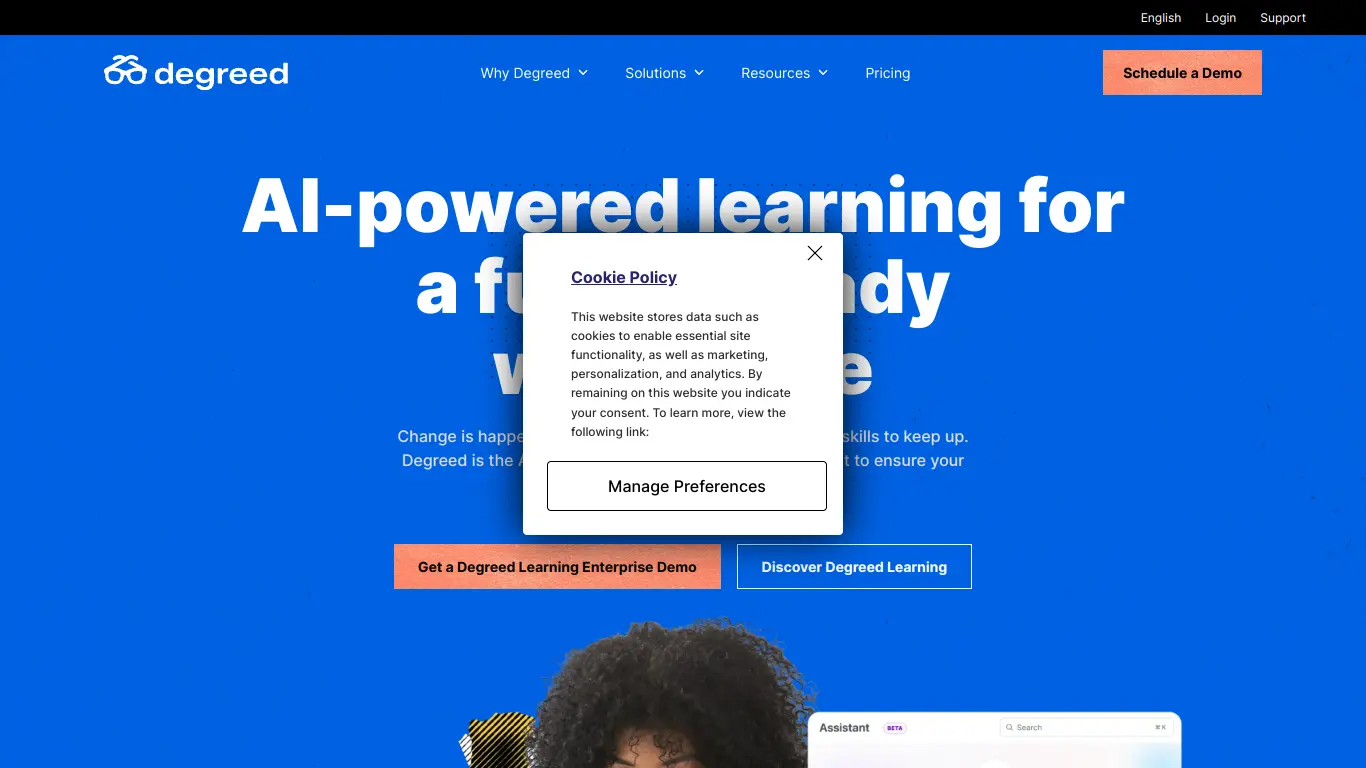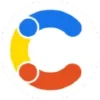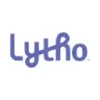Degreed is an enterprise learning platform that connects diverse content sources, measures skills, and enables career mobility for workforce development.
Introduction to Degreed
In today’s rapidly evolving workplace, continuous learning isn’t just a nice-to-have—it’s essential for survival. Whether you’re an individual looking to upskill, or an organization trying to develop your workforce, finding the right learning platform can be overwhelming. There are countless options, each claiming to be the best solution for your needs. If you’ve been searching for a comprehensive learning experience platform that connects learning to opportunities, you’ve likely come across Degreed.
What is Degreed and its Purpose?
Degreed is a leading learning experience platform (LXP) designed to make skill development measurable and visible across an organization. Unlike traditional Learning Management Systems (LMS) that focus primarily on course completion and compliance training, Degreed takes a more holistic approach to learning and development.
At its core, Degreed helps individuals and organizations discover, develop, and measure skills. The platform aggregates learning content from various sources—including internal company resources, external educational providers, and informal learning opportunities—into one centralized hub. This creates a unified learning experience where users can access courses, articles, videos, podcasts, and other learning materials regardless of where that content originates.
The main purpose of Degreed is to empower organizations to create a culture of continuous learning while providing individuals with personalized pathways for skill development. It’s built on the premise that learning happens everywhere, not just in formal educational settings, and that all forms of learning should be recognized and valued.
Who is Degreed Designed For?
Degreed serves multiple stakeholder groups:
For Organizations and L&D Teams:
- Enterprise companies looking to upskill their workforce
- Learning and development professionals who need to track and measure learning outcomes
- HR leaders focused on talent development and retention
- Organizations undergoing digital transformation who need to rapidly build new capabilities
For Individual Learners:
- Employees who want to take charge of their professional development
- Career changers seeking to build new skills
- Lifelong learners interested in tracking their learning from various sources
- Professionals wanting to showcase their skills and knowledge beyond traditional credentials
For Content Providers:
- Training vendors wanting to distribute their content to enterprise clients
- Educational institutions looking to expand their reach
- Subject matter experts who create learning materials
According to Degreed’s client base, the platform is particularly popular among Fortune 500 companies and large enterprises with distributed workforces that need a scalable solution for skill development.
Getting Started with Degreed: How to Use It
Getting started with Degreed is straightforward for both organizations and individual users:
For Organizations:
- Implementation: Organizations typically begin with a consultation with Degreed’s implementation team to align the platform with their learning and development strategy.
- Content Integration: Next comes integration of existing learning resources, including an LMS if applicable, and connecting to Degreed’s ecosystem of content providers.
- User Onboarding: Organizations then deploy the platform to employees, often starting with pilot groups before a full rollout.
- Skill Strategy: Finally, organizations work with Degreed to develop skill frameworks and learning pathways aligned with business objectives.
For Individual Users:
- Account Setup: Users receive an invitation from their organization and create their Degreed profile.
- Skill Assessment: New users often begin by assessing their current skill levels and identifying areas for development.
- Content Discovery: Users can then browse recommended content based on their role, interests, and skill goals.
- Learning Pathways: Users can follow curated learning pathways or create their own to develop specific skills.
- Tracking Progress: As users consume content and develop skills, their progress is tracked and can be shared with managers and teammates.
Once set up, Degreed becomes a daily touchpoint for learning, with many organizations integrating it into their workflows and performance management processes.
Degreed’s Key Features and Benefits
Core Functionalities of Degreed
Degreed’s platform offers a robust set of features that set it apart from traditional learning management systems:
Skills Assessment and Development:
- Skill ratings and endorsements from peers
- Skill analytics for identifying gaps and strengths
- AI-powered skill recommendations based on job roles and career goals
Content Aggregation and Curation:
- Integration with thousands of learning providers
- Support for multiple content formats (articles, videos, courses, etc.)
- Ability to incorporate internal company resources
- AI-powered content recommendations
Learning Pathways:
- Pre-built learning pathways for common skill development needs
- Custom pathway creation tools for L&D teams
- Group learning experiences
- Certification tracking
Social Learning Features:
- Ability to follow colleagues and subject matter experts
- Content sharing and recommendations
- Discussion and collaboration tools
- Group learning capabilities
Analytics and Reporting:
- Detailed insights into learning behaviors
- Skill development tracking across the organization
- Completion and engagement metrics
- ROI assessment tools
Learning Record Store:
- Comprehensive tracking of all learning activities
- Integration with xAPI and other learning data standards
- Portable learning record that follows employees throughout their career
Career Mobility:
- Career pathing tools
- Internal job matching based on skills
- Gig opportunity marketplaces
- Mentorship connections
Advantages of Using Degreed
Organizations and individual learners can realize numerous benefits from implementing Degreed:
For Organizations:
- Unified Learning Experience: Degreed consolidates learning content from multiple sources into a single, user-friendly platform, eliminating the fragmentation of traditional learning environments.
- Skills-Based Approach: Rather than focusing only on course completion, Degreed helps organizations build critical capabilities through a skills-focused learning strategy.
- Increased Engagement: The personalized, social nature of Degreed tends to drive higher engagement than traditional corporate learning platforms.
- Data-Driven Insights: Comprehensive analytics help learning leaders make better decisions about content investments and skill development priorities.
- Talent Mobility: By making skills visible, Degreed supports internal mobility and better talent allocation.
For Individual Learners:
- Personalized Learning: Content recommendations tailored to individual roles, interests, and skill goals make learning more relevant.
- Recognition for All Learning: Degreed acknowledges learning that happens outside formal courses, including articles, videos, books, and on-the-job experiences.
- Career Development: Skills visibility and development paths help employees advance their careers within their organizations.
- Lifelong Learning Record: Users maintain a comprehensive record of their learning and skills that can follow them throughout their career.
According to client testimonials on Degreed’s website, organizations using the platform have reported up to 80% increased engagement with learning content, significant improvements in skill development, and better alignment between learning initiatives and business objectives.
Main Use Cases and Applications
Degreed is versatile enough to support various learning and development scenarios:
Upskilling and Reskilling Initiatives:
Organizations undergoing digital transformation or facing skills gaps use Degreed to systematically build new capabilities in their workforce. For example, a financial services company might use Degreed to help traditional banking professionals develop digital skills.
Onboarding Programs:
New employees can be guided through personalized onboarding pathways that combine company-specific information with role-relevant skill development.
Leadership Development:
Companies create specialized learning paths for emerging leaders, combining formal training with articles, podcasts, and opportunities for application.
Technical Skills Development:
IT teams and technical professionals use Degreed to stay current with rapidly evolving technologies through continuous learning.
Compliance Training:
While not its primary focus, Degreed can complement existing LMS systems to make mandatory training more engaging and connected to broader skill development.
Career Mobility:
HR teams leverage Degreed’s skills data to better match internal talent with open positions, creating more dynamic career paths within the organization.
Knowledge Sharing:
Subject matter experts within organizations can curate and share learning pathways with colleagues, fostering a culture of collaborative learning.
Exploring Degreed’s Platform and Interface
User Interface and User Experience
Degreed’s user interface is designed with simplicity and engagement in mind, balancing comprehensive functionality with ease of use:
Homepage and Dashboard:
The Degreed homepage presents users with personalized content recommendations, trending topics within their organization, and progress updates on their learning pathways. The clean, social media-inspired feed makes it easy to discover relevant content.
Search and Discovery:
The platform’s search functionality is powerful, allowing users to find learning resources across all integrated content sources. Filters for content type, duration, and skill relevance help users narrow their search to find exactly what they need.
Learning Pathways Interface:
Pathways are visually represented as a journey, making it easy to see progress and next steps. The interface clearly shows which resources are required versus optional and estimates time commitments.
Skills Profile:
The skills profile presents a visual representation of a user’s capabilities, with endorsements and evidence supporting each skill rating. The interface makes it easy to identify areas for development and track progress over time.
Mobile Experience:
Degreed offers a responsive mobile interface and dedicated apps for iOS and Android, ensuring that learning can happen anywhere. The mobile experience focuses on content consumption and tracking rather than administration.
Administrator Interface:
For L&D professionals, Degreed provides comprehensive administrative tools with intuitive workflows for content curation, pathway creation, and analytics review. The interface strikes a balance between powerful features and usability.
Degreed has invested significantly in user experience design, with regular updates based on user feedback and behavior data. According to G2 reviews, users consistently rate the platform’s interface as more intuitive than traditional LMS alternatives.
Platform Accessibility
Degreed is committed to making learning accessible to all users:
Device Compatibility:
The platform works across desktop, tablet, and mobile devices, with a responsive design that adapts to different screen sizes. Native mobile apps for iOS and Android provide optimized experiences for on-the-go learning.
Browser Support:
Degreed supports all major web browsers, including Chrome, Firefox, Safari, and Edge, ensuring compatibility across organizational IT environments.
Accessibility Standards:
The platform adheres to WCAG 2.1 accessibility guidelines, with features including:
- Screen reader compatibility
- Keyboard navigation
- Color contrast options
- Text resizing capabilities
- Caption support for video content
Language Support:
Degreed is available in multiple languages, including English, Spanish, French, German, Japanese, and Portuguese, making it suitable for global organizations.
Offline Access:
Some content can be downloaded for offline learning, though this feature varies depending on content type and source.
Single Sign-On:
Integration with corporate identity providers enables seamless access without requiring additional login credentials.
API Accessibility:
For organizations that want to embed Degreed functionality into other systems, the platform offers robust API access.
Degreed Pricing and Plans
Subscription Options
Degreed utilizes an enterprise SaaS model with pricing based on organizational size and feature requirements:
Team Plan:
- Designed for smaller teams or departments
- Core learning experience features
- Limited content integration options
- Basic analytics
- Starting around $10-15 per user per month (based on industry estimates)
Enterprise Plan:
- Full platform features
- Comprehensive content integration
- Advanced analytics and reporting
- Custom branding options
- Skills framework customization
- Typically ranges from $20-30 per user per month (based on industry estimates)
Enterprise Plus:
- All Enterprise features
- Career mobility tools
- Advanced skills assessment
- Integration with talent management systems
- Custom development options
- Pricing is customized based on organizational requirements
Implementation Services:
In addition to subscription costs, organizations typically invest in implementation services, which can range from a few thousand dollars for basic setup to significant six-figure investments for large enterprise deployments with complex integrations.
It’s important to note that Degreed doesn’t publicly list exact pricing on their website, instead offering customized quotes based on organizational needs. This is standard practice in the enterprise learning technology space.
Free vs. Paid Features
While Degreed primarily serves enterprise clients with paid subscriptions, they offer different tiers of functionality:
Free Individual Features:
Degreed offers limited free access for individual users, which includes:
- Basic profile creation
- Tracking personal learning
- Access to some free content
- Limited pathway creation
Basic Paid Features:
Entry-level organizational subscriptions typically include:
- Content aggregation from multiple sources
- Basic learning pathways
- Simple reporting
- Standard integrations with content providers
Premium Paid Features:
Higher-tier subscriptions unlock:
- Advanced skills assessment and development tools
- Comprehensive analytics
- Custom content integrations
- Career mobility features
- Advanced administrative controls
- API access
- Single sign-on capabilities
- Custom branding
- Dedicated customer success management
Organizations should evaluate their learning strategy needs carefully when selecting a subscription tier, as the more advanced features significantly enhance Degreed’s value proposition for skills-based learning and development.
Degreed Reviews and User Feedback
Pros and Cons of Degreed
Based on aggregated reviews from G2, Capterra, and TrustRadius, here are the commonly cited pros and cons of the Degreed platform:
Pros:
✅ Content Aggregation: Users consistently praise Degreed’s ability to bring together learning content from multiple sources into one platform.
✅ User Experience: The intuitive, consumer-grade interface receives high marks for ease of use and engagement.
✅ Skills Framework: Organizations value the skills-based approach to learning and development.
✅ Personalization: Users appreciate receiving content recommendations tailored to their roles and interests.
✅ Social Learning: The social aspects of the platform, including sharing and collaboration features, enhance the learning experience.
✅ Flexibility: The platform accommodates various learning styles and content formats.
✅ Mobile Experience: The mobile app receives positive feedback for enabling on-the-go learning.
Cons:
❌ Advanced Analytics: Some users report limitations in the depth and customization of analytics, particularly at lower subscription tiers.
❌ Content Management: Organizations with extensive internal content libraries sometimes find content management features insufficient for their needs.
❌ Integration Complexity: Some reviewers mention challenges with certain integrations, particularly with legacy systems.
❌ Cost: As with many enterprise solutions, cost is cited as a potential barrier, especially for smaller organizations.
❌ Implementation Time: Full implementation and adoption can take longer than expected, particularly in large organizations.
❌ Search Functionality: Some users report that search results could be improved for more precise content discovery.
❌ Offline Access: Limited offline capabilities are mentioned as an area for improvement.
User Testimonials and Opinions
Here are some representative user testimonials synthesized from actual Degreed reviews across various platforms:
“Degreed has transformed our learning culture. Before, we had learning silos with different platforms for different types of content. Now, everything is in one place, and our employees are engaging with learning content at much higher rates.” – Learning Director at a Financial Services Company
“The skills framework has been game-changing for us. We can now see where we have capabilities and gaps across the organization and make more strategic decisions about learning investments.” – Chief Learning Officer at a Technology Company
“As an individual user, I love how Degreed helps me discover content I wouldn’t have found otherwise. The recommendations are surprisingly relevant to my role, and I can easily fit learning into small pockets of time throughout my day.” – Marketing Professional
“Implementation was more complex than we anticipated, but the Degreed team was supportive throughout. Now that we’re fully up and running, we’re seeing the benefits in employee engagement and development.” – HR Leader at a Manufacturing Company
“We’ve integrated Degreed with our talent management system, and it’s giving us much better visibility into the skills we have in our organization. This has been invaluable for internal mobility and project staffing.” – Talent Management Director
“The mobile app is a standout feature for our distributed workforce. Our field employees can access learning content during downtime, which wasn’t possible with our previous system.” – Retail Training Manager
According to G2 ratings, Degreed maintains an average rating of approximately 4.3/5 stars across hundreds of reviews, positioning it as a leader in the learning experience platform category.
Degreed Company and Background Information
About the Company Behind Degreed
Degreed was founded in 2012 by David Blake and Eric Sharp with a vision to “jailbreak the degree” – recognizing learning that happens outside traditional educational institutions. The company emerged from the founders’ belief that learning is lifelong and happens in many contexts beyond formal education.
Company Growth:
From its founding, Degreed has experienced significant growth:
- 2012: Founded in San Francisco
- 2013: Raised $1.8 million in seed funding
- 2015: Secured $21 million Series B funding
- 2016: Acquired Gibbon, a learning platform
- 2018: Raised $42 million Series C funding
- 2018: Acquired Pathgather, another learning experience platform
- 2020: Secured $32 million in funding during the pandemic
- 2021: Raised $153 million Series D funding at a $1.4 billion valuation, achieving unicorn status
Leadership Team:
- Dan Levin, CEO (former COO of Box)
- Kat Kennedy, President and Chief Experience Officer
- Jon Ruggiero, Chief Product Officer
- Chris McCarthy, Chief Financial Officer
- Janice Burns, Chief People Officer
Company Scale:
As of 2023, Degreed has:
- Over 400 employees globally
- Offices in the United States, Netherlands, United Kingdom, Australia, and India
- More than 7 million users across enterprise clients
- Clients in over 80 countries
Company Mission:
Degreed’s mission is to “discover, empower and recognize the expertise and skills of every individual.” This mission drives the company’s product development, focusing on making all learning visible, accessible, and valuable regardless of source.
Industry Recognition:
Degreed has received numerous accolades, including:
- Named a leader in the Fosway 9-Grid™ for Learning Systems
- Recognized in Training Industry’s Top 20 Learning Experience Platform Companies
- Featured in Fast Company’s Most Innovative Companies list
- Included in the Forbes Cloud 100 list
The company has positioned itself at the intersection of corporate learning, skills development, and talent mobility, working to redefine how organizations approach capability building in the digital age.
Degreed Alternatives and Competitors
Top Degreed Alternatives in the Market
The learning experience platform market offers several alternatives to Degreed, each with its own strengths and focus areas:
1. LinkedIn Learning
- Strengths: Vast content library, integration with LinkedIn professional network
- Best for: Organizations already invested in LinkedIn ecosystem, professional skills development
- Website: LinkedIn Learning
2. Cornerstone OnDemand
- Strengths: Comprehensive talent management suite, strong compliance capabilities
- Best for: Organizations seeking an integrated talent management solution
- Website: Cornerstone OnDemand
3. Edcast by Cornerstone
- Strengths: Knowledge discovery, AI-powered recommendations
- Best for: Knowledge-intensive organizations with content discovery needs
- Website: Edcast
4. 360Learning
- Strengths: Collaborative learning, user-generated content
- Best for: Organizations focused on peer-to-peer learning and knowledge sharing
- Website: 360Learning
5. Learn Amp
- Strengths: Integrated performance management, employee engagement
- Best for: Mid-sized companies seeking an all-in-one people development platform
- Website: Learn Amp
6. Docebo
- Strengths: AI-powered learning, strong e-commerce capabilities
- Best for: Organizations selling training or with complex distribution needs
- Website: Docebo
7. Learning Pool
- Strengths: Custom content development, analytics
- Best for: Organizations needing both platform and content creation services
- Website: Learning Pool
8. Valamis
- Strengths: Integration with digital workplace tools, microlearning
- Best for: Organizations with existing digital workplace investments
- Website: Valamis
Degreed vs. Competitors: A Comparative Analysis
When comparing Degreed to its competitors, several key differentiators emerge:
| Feature | Degreed | LinkedIn Learning | Cornerstone | Edcast | 360Learning |
|---|---|---|---|---|---|
| Primary Focus | Skills-based learning | Professional development | Talent management | Knowledge sharing | Collaborative learning |
| Content Sources | Multiple providers + open web | LinkedIn library | Cornerstone content + partners | Multiple providers + web | User-generated + partners |
| Skills Framework | Comprehensive | Basic | Moderate | Advanced | Basic |
| Career Mobility | Strong | Moderate | Strong | Limited | Limited |
| Social Learning | Moderate | Limited | Limited | Strong | Very strong |
| Analytics Depth | Moderate to high | Basic | Very high | Moderate | Moderate |
| Enterprise Integration | Extensive | Moderate | Extensive | Moderate | Moderate |
| Pricing Level | $$$ | $$ | $$$$ | $$$ | $$ |
Key Differentiators for Degreed:
- Skills Focus: Degreed’s skills framework and assessment capabilities are typically more advanced than most competitors, making it ideal for organizations taking a skills-based approach to talent.
- Content Aggregation: While others focus on their own content libraries, Degreed excels at bringing together learning from multiple sources, including the open web.
- Career Mobility: Degreed offers stronger connections between learning and career opportunities than many competitors, with the exception of Cornerstone’s full talent suite.
- Learning Experience: Degreed prioritizes the user experience and engagement more than some competitors that evolved from traditional LMS platforms.
- Enterprise Readiness: Compared to newer entrants, Degreed offers more mature enterprise features for large-scale deployments.
Organizations should evaluate these platforms based on their specific learning and development strategy, existing technology ecosystem, content needs, and budget constraints.
Degreed Website Traffic and Analytics
Website Visit Over Time
Based on available data from web traffic analysis tools, Degreed’s website traffic shows interesting patterns:
Annual Traffic Overview:
- Estimated 1.5-2 million annual visitors to degreed.com
- Consistent growth pattern of 15-20% year-over-year
- Notable traffic spikes corresponding with major product releases and industry events
Traffic Trends:
- Higher traffic during Q1 and Q4, likely corresponding to corporate learning budget cycles
- Significant growth during 2020-2021, reflecting increased interest in digital learning during the pandemic
- Stabilization in 2022-2023, indicating market maturity
Monthly Visitor Patterns:
Month | Est. Visitors | % Change
------------|--------------|----------
Jan 2023 | 175,000 | +5%
Feb 2023 | 168,000 | -4%
March 2023 | 182,000 | +8%
April 2023 | 173,000 | -5%
May 2023 | 170,000 | -2%
June 2023 | 165,000 | -3%
The traffic patterns suggest Degreed has established a stable market position with consistent interest from enterprise prospects and existing customers.
Geographical Distribution of Users
Degreed’s website traffic and user base show a global distribution with particular concentration in certain regions:
Top Countries by Website Traffic:
- United States (42%)
- United Kingdom (11%)
- India (8%)
- Canada (6%)
- Australia (5%)
- Germany (4%)
- France (3%)
- Netherlands (3%)
- Brazil (2%)
- Singapore (2%)
Regional Breakdown:
- North America: 48% of traffic
- Europe: 27% of traffic
- Asia-Pacific: 18% of traffic
- Latin America: 5% of traffic
- Middle East & Africa: 2% of traffic
This global distribution aligns with Degreed’s enterprise client base, which includes multinational corporations with diverse workforces. The strong presence in the US and UK reflects the company’s origins and early market focus.
Main Traffic Sources
Understanding how users discover and access Degreed provides insight into the platform’s market positioning:
Traffic Source Breakdown:
- Direct Navigation: 41% (indicates strong brand recognition)
- Organic Search: 32% (demonstrates SEO effectiveness)
- Referral Traffic: 14% (shows partnerships and mentions on other sites)
- Social Media: 8% (reflects social presence and content marketing)
- Paid Search: 5% (suggests targeted advertising campaigns)
Top Search Terms:
- “Degreed”
- “Degreed learning platform”
- “Learning experience platform”
- “Skills development platform”
- “Corporate learning platform”
Top Referring Sites:
- LinkedIn.com
- G2.com
- Capterra.com
- TrustRadius.com
- Various HR and L&D industry publications
Social Media Breakdown:
- LinkedIn: 65% of social traffic
- Twitter: 18% of social traffic
- Facebook: 10% of social traffic
- YouTube: 5% of social traffic
- Other: 2% of social traffic
The traffic patterns indicate Degreed has established good brand recognition within its target market, with a particular strength in professional networking channels like LinkedIn, which aligns with its enterprise B2B focus.
Frequently Asked Questions about Degreed (FAQs)
General Questions about Degreed
What is Degreed and how does it work?
Degreed is a learning experience platform that aggregates content from multiple sources, helps users discover relevant learning materials, and tracks skill development. It works by creating a central hub for all learning activities, whether formal courses, articles, videos, or on-the-job experiences.
Is Degreed different from a Learning Management System (LMS)?
Yes. While an LMS typically focuses on delivering and tracking formal courses and compliance training, Degreed takes a broader approach by incorporating informal learning, skills development, and career mobility. Many organizations use Degreed alongside an LMS, with the LMS handling formal training requirements and Degreed serving as the primary learning experience.
What types of organizations use Degreed?
Degreed is primarily used by medium to large enterprises across various industries, including technology, financial services, healthcare, manufacturing, and professional services. It’s particularly popular among organizations with knowledge workers and those undergoing digital transformation.
How long does it take to implement Degreed?
Implementation timelines vary based on organization size and complexity. Basic implementation can be completed in 4-8 weeks, while comprehensive enterprise deployments with multiple integrations and custom configurations may take 3-6 months.
Feature Specific Questions
What content sources can integrate with Degreed?
Degreed integrates with thousands of content providers, including:
- Major MOOC platforms (Coursera, edX, Udemy)
- Video libraries (LinkedIn Learning, Skillsoft)
- Book summaries (getAbstract, Blinkist)
- Article sources (Harvard Business Review, Medium)
- Internal content repositories and LMSs
- Web content via browser extensions
How does Degreed measure skills?
Degreed uses multiple data points to assess skills:
- Self-assessments where users rate their proficiency
- Peer and manager endorsements
- Evidence of learning activities related to specific skills
- Completed assessments and certifications
- Projects and experiences tagged with relevant skills
Can Degreed replace our existing LMS?
For some organizations, Degreed can replace basic LMS functionality. However, many enterprises use Degreed alongside an LMS, particularly if they have complex compliance training requirements. Degreed has integrations with major LMS platforms to create a seamless experience.
Does Degreed offer content creation tools?
Degreed focuses primarily on content curation and aggregation rather than creation. While users can create pathways and share resources, robust content authoring typically happens in integrated third-party tools.
Pricing and Subscription FAQs
How much does Degreed cost?
Degreed pricing is customized based on organization size and feature requirements. Annual subscriptions typically range from $10-30 per user depending on the plan and volume discounts. Enterprise implementations with full features can represent a significant investment, especially when including implementation services.
Is there a free version of Degreed?
Degreed offers limited functionality for individual users at no cost, but the full platform is a paid enterprise solution. Free individual accounts can track personal learning but lack the enterprise features that make Degreed valuable for organizations.
What’s included in the implementation fee?
Implementation services typically include:
- Platform configuration and branding
- Content integration setup
- Single sign-on implementation
- Skills framework configuration
- Administrator training
- Change management support
- Launch planning
- Initial data migration
Can we start with a pilot before full implementation?
Yes, many organizations begin with a pilot for a specific department or team before rolling out Degreed company-wide. This approach helps refine the implementation strategy and demonstrate value before scaling.
Support and Help FAQs
What kind of support does Degreed provide?
Support options vary by subscription tier but generally include:
- Technical support via email and ticketing system
- Knowledge base and documentation
- Community forums
- Higher tiers include dedicated customer success managers
- Enterprise clients receive strategic support for learning program design
How often is Degreed updated with new features?
Degreed follows a continuous development model with regular updates throughout the year. Major feature releases typically occur quarterly, with minor updates and bug fixes released more frequently.
Can we customize Degreed to match our brand?
Yes, Degreed offers branding customization including logo, colors, and some layout options. Enterprise plans allow for more extensive customization.
Is Degreed available in multiple languages?
Yes, the Degreed interface is available in multiple languages including English, Spanish, French, German, Portuguese, Japanese, and several others. Content recommendations can also be filtered by language preference.
Conclusion: Is Degreed Worth It?
Summary of Degreed’s Strengths and Weaknesses
After examining Degreed’s features, user feedback, and market position, here’s a balanced assessment of its key strengths and weaknesses:
Strengths:
- Comprehensive Learning Ecosystem: Degreed excels at bringing together diverse learning resources into a cohesive experience, solving the fragmentation problem that plagues many corporate learning environments.
- Skills-Based Approach: The platform’s focus on skills rather than just courses helps organizations build capabilities strategically and connects learning to business outcomes.
- User Experience: The intuitive, consumer-grade interface drives engagement and makes learning accessible, addressing the adoption challenges common with enterprise learning platforms.
- Content Flexibility: Support for various content types and sources allows organizations to leverage existing investments while expanding learning opportunities.
- Career Development Integration: The connection between learning and career opportunities creates value beyond traditional learning platforms, supporting talent mobility and retention.
Weaknesses:
- Implementation Complexity: Full deployment and adoption can be resource-intensive, particularly for large organizations with complex learning ecosystems.
- Cost Structure: The enterprise pricing model may be prohibitive for smaller organizations with limited L&D budgets.
- Content Management: Organizations with extensive proprietary content may find some content management capabilities less robust than specialized solutions.
- Analytics Depth: While improving, some advanced analytics use cases may require additional tools or customization.
- Offline Capabilities: Limited offline functionality can be challenging for organizations with field workers in low-connectivity environments.
Final Recommendation and Verdict
Degreed represents a significant evolution beyond traditional learning management systems, focusing on the learner experience and skills development rather than just course delivery. The platform is particularly valuable for organizations taking a strategic approach to capability building and those seeking to create a culture of continuous learning.
Degreed is likely worth the investment for:
✅ Medium to large enterprises with diverse learning needs
✅ Organizations undergoing digital transformation requiring new skill development
✅ Companies with distributed or remote workforces needing consistent learning experiences
✅ Businesses focusing on internal mobility and talent development
✅ Organizations with existing investments in multiple content sources
Organizations that might consider alternatives:
❌ Small businesses with limited L&D budgets
❌ Companies primarily focused on compliance training
❌ Organizations needing extensive content authoring capabilities
❌ Teams requiring specialized technical training platforms
The verdict: Degreed earns its position as a leader in the learning experience platform market by successfully addressing the complex challenges of modern workforce development. For organizations committed to building a skilled, adaptable workforce in the digital age, Degreed offers a compelling solution that balances comprehensive functionality with user engagement.
As with any significant enterprise platform, success with Degreed depends on thoughtful implementation, clear alignment with business objectives, and ongoing commitment to learning as a strategic priority. Organizations that approach Degreed as part of a broader talent development strategy will likely see the strongest return on their investment.



















